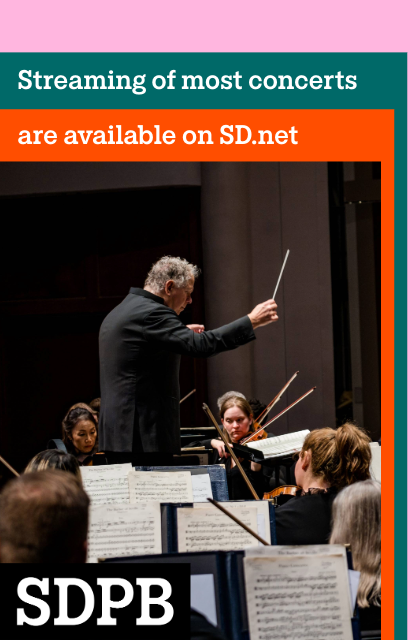Born
1958
Instrumentation
flute, piccolo, oboe, clarinet, bassoon, horn, trumpet, trombone, tuba, timpani, percussion, harp, violin, viola, cello, string bass
Duration
36 minutes
Program Notes
Written by the composer
We know that the climate crisis threatens all life on Earth with dislocation and destruction. How can an individual or a community cope with such knowledge? How can we summon the will to constructive action at this late date? My second violin concerto, composed for Elissa Cassini, explores climate grief and despair, but also reason for hope and a call to climate action.
The concerto is rooted in climate science, thanks to the participation of ClimateMusic Project, a nonprofit dedicated to connecting people to climate science and action through the emotional power of music. CMP connected Elissa and me with climate scientists who helped us understand the cascades of phenomena that lead to planetary warming and its consequences, as well as cascades of technological and behavioral change that push back against the current. The image of cascades appealed to my musical imagination, and the related ideas of vicious circles and virtuous circles came to inspire the form of the work.
Learning about climate grief convinced me that human psychology is key to our survival: the resilience to face the unimaginable. In this concerto, the soloist is a protagonist witnessing and participating in the vicious circles of climate change; processing existential fear; and renewing her spirit and partaking in the virtuous circles that may yet stave off the worst. In a sense, the entire drama unfolds in the mind and heart of the protagonist.
The five movements proceed without a break. The Prologue features percussion illustrating the increasing levels of carbon dioxide in our atmosphere, followed by the dazzling appearance of the sun, source of all energy on earth. The soloist salutes the sun, which will reappear throughout the work. In Vicious Circles, the inexorable presence of fossil fuels begins successive, accelerating cycles of reinforcing phenomena: combustion, accumulation of greenhouse gases, rising ocean temperatures, acidification of the oceans, melting ice sheets, rising sea level, and finally, supercharged storms. The music's tempo gradually increases as the images crowd in. The soloist expresses growing alarm and is finally overwhelmed.
Mourning and Renewal begins with the soloist in a psychic flatline, with a few orchestra strings playing out of tune. She mourns all that is being lost. A turning point comes when woodwinds invoke the beauty of what remains. In the cadenza that follows, the soloist renewed motivation to protect what she can, while still plagued by doubts. Virtuous Circles is an extended rondo form with a cascading figure as a recurring idea, gathering speed with each iteration. In between are episodes inspired by the pace of technological innovation we see today, with musical cells interlocking into increasingly energetic structures. The bane of particulate airborne pollution, suggested by grinding strings and buzzing winds, gradually disappears with reduced combustion. At the climax, the sun makes its final appearance, offering unfailing vitality to power renewable energy. In the Epilogue, fossil fuels and greenhouse gasses remain with us, but so too does an upward-swelling vision of hope. We arrive finally at the brink - of doom, or of decisive action. The choice is ours, in how we respond to what is happening around us.
My Violin Concerto No. 2 on the brink was commissioned by Elizabeth and Justus Schlichting and composed for Elissa Cassini. I deeply appreciate their faith in this project. I dedicate the concerto, in hope, to humanity's best qualities, our ingenuity and compassion for each other and for our one planet home.


